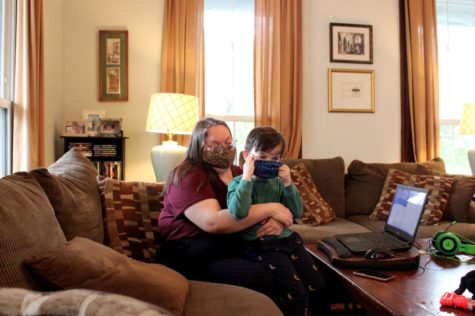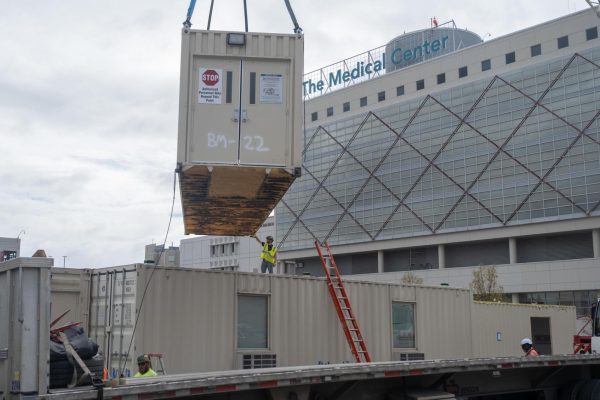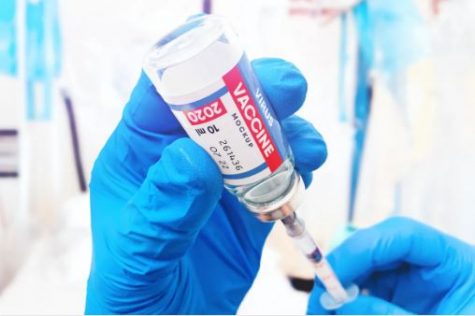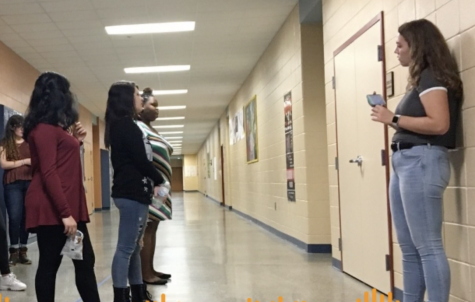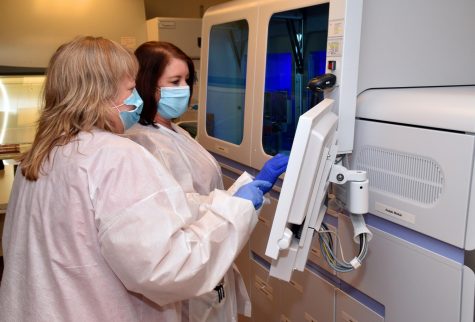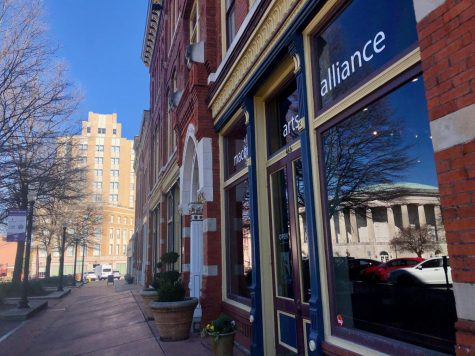Food Insecurity and the COVID Impact
What is the cost of COVID for families now forced to turn to food pantries in order to eat? According to the Urban Institute, one in six Americans were left food insecure during the first two months of the COVID-19 outbreak. Nationally, millions of families experienced some level of food insecurity that experts are attributing to the pandemic.
If those numbers sound far-fetched, just look locally to the recent Oct. 9 food give-a-way. More than 1,400 people waited in their cars to pick up boxes packed with fresh and non-perishable foods. This second mobile pantry, held at the Navicent Family Health Center in South Macon, served people from 14 Middle Georgia counties.
“So thankful and grateful,” said O’Melia Munford. The Macon resident said things were already hard for her before COVID-19 hit. Now she is just trying to go to school and keep her cellphone on.
“A friend of mine came and told me about the event. I just had five minutes on my phone yesterday, no one could call me. So I was so thankful for her coming to tell me,” Munford said.
As Macon resident Ben Galloway waited in line, he said he appreciated this help during these hard times.

“It’s something that’s needed for everybody. Seriously, it doesn’t hurt at all and it helps a lot of families. We are not the only ones out here, there are a 1000 people,” Galloway said.
Volunteers with the Medical Center Navicent Health, The Middle Georgia Community Food Bank, and World Changers Church in Macon hustled to pack food boxes and load them into vehicles with assembly line fashion. In July, many of these same volunteers served even more people during a similar event also held at the Navicent Center’s South Macon site.
Volunteering at the Oct. 9 event was Dr. Y. Monique Davis-Smith, residency program director and professor of family medicine at Mercer School of Medicine. She said, “Food insecurity was clearly a challenge pre-pandemic, and now the pandemic has just amplified it.”
Davis-Smith said the initial problem with the issue of food and security was the closing of restaurants and grocery stores in select communities, leaving people without proper access to real food.
“But now it’s compounded with closing grocery stores and lack of income to buy the groceries even if you had the grocery store there to purchase it from. And so the compound of food deserts and loss of income has escalated the need for the community food banks and events like this,” Davis-Smith said.
Jeff Batcher, chairman of the board of the Middle Georgia Community Food Bank, said Bibb and surrounding counties have an extremely high poverty rate. Right now people are scared, Batcher said. Families have lost wages, seniors are staying at home out of fear, and more and more people are relying on this kind of additional food help.
“We’ve seen a significant rise in those that are food insecure, especially since a pandemic started in March, in many cases, almost a doubling of those who are requesting food in the 24 counties we serve. Last year, we gave out approximately 11 million meals. We’re on track this year to probably give out almost 20 million meals,” Batcher said.

Then there is the unseen emotional toll of COVID-driven food insecurities. Davis-Smith said, whatever ideas we have about who accesses a food pantry or needs foods, we should erase them because, “it could be anyone at this point.” Davis-Smith said COVID-19 has been a great equalizer.
“It has disrupted and usurped many families. And to understand that it probably took a lot for some of these families to come here emotionally or mentally thinking that this is not me, I should be donating and not receiving,” she said.
Solving the initial problem of food insecurity has been made more difficult with related COVID-19 issues like record unemployment, business loss, and healthcare concerns. However, the answer is straightforward according to Davis-Smith.
“Get in there and help each other out,” she said. “ Seeing the need and addressing it is where I would hope that we can go with humanity.”
Batcher said it is important for agencies like the Middle Georgia Community Food Bank to continue to team up with other organizations and do everything it can to fill the gap.
“These events are so important to be able to get the people the food that they need. Also, people become aware in the community that we need resources, and we need volunteers.”
Click here for a list of more than 100 agencies and pantries across Middle Georgia, providing healthy meals for families and individuals.



